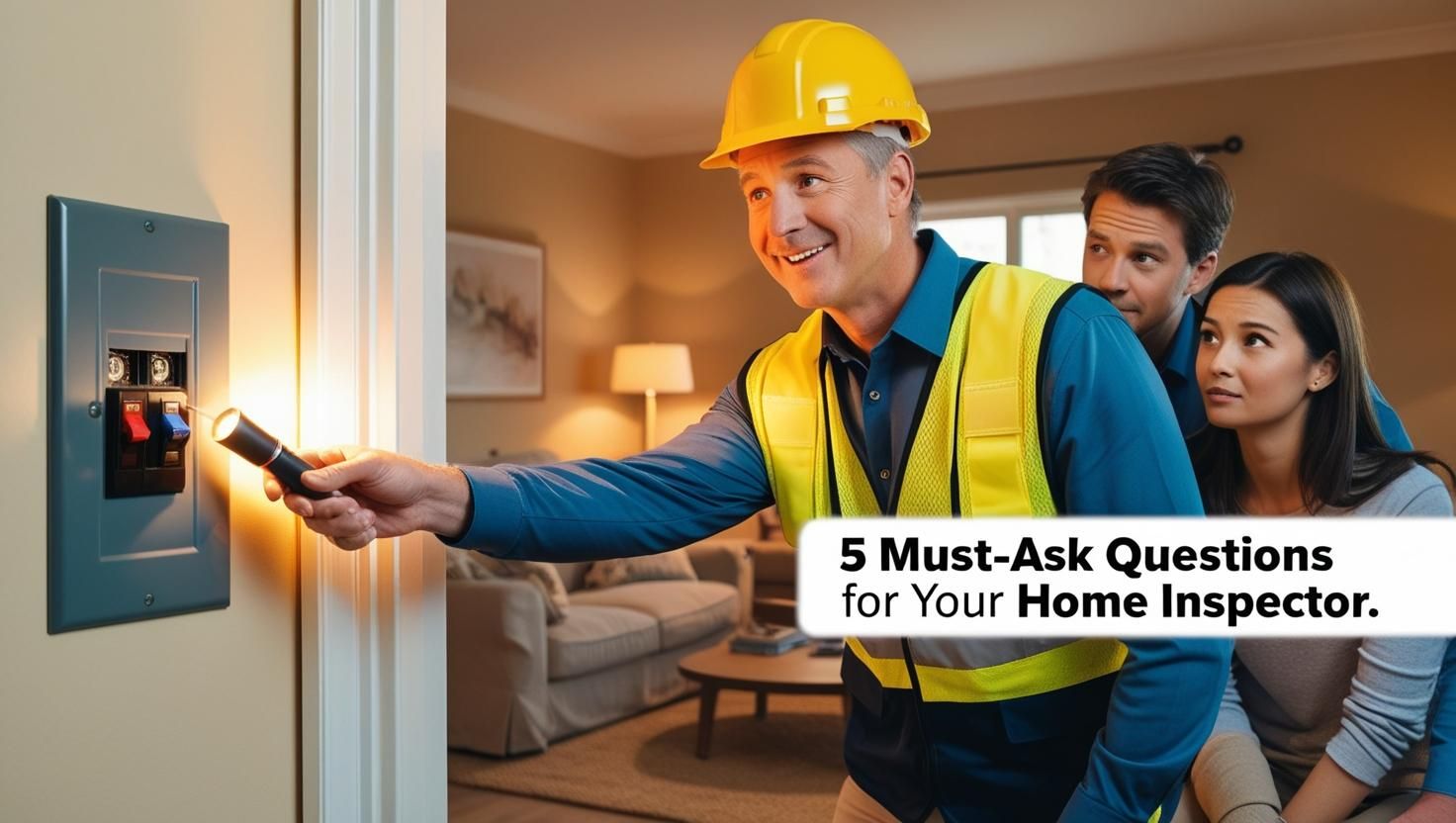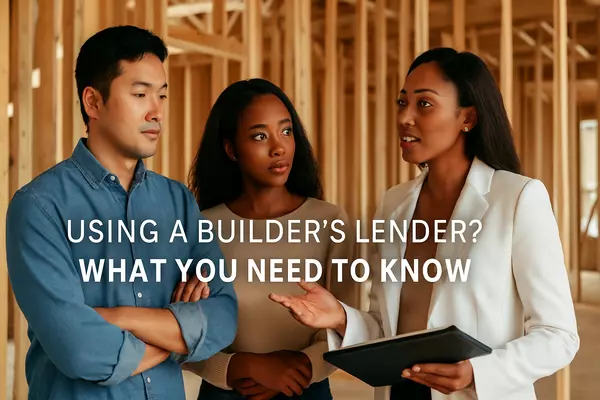5 Must-Ask Questions for Your Home Inspector (Especially #4!)


When you're buying a home, the last thing you want is a surprise after closing. A thorough home inspection is one of the most important steps in protecting your investment—and the key to getting the most value from it is asking the right questions.
Whether you're buying your first home or your forever home, here are five questions you should always ask your home inspector before you finalize the deal:
1. What Are the Most Urgent Repairs Needed?
Not all issues are created equal. Some may be cosmetic, while others can compromise safety or lead to expensive repairs down the line.
Ask your inspector:
-
Which items need immediate attention?
-
Are there any safety hazards or building code violations?
-
Which issues could cause further damage if left unresolved?
Why it matters: This helps you decide whether to ask the seller for repairs or concessions—or prepare your post-purchase budget accordingly.
2. Are There Signs of Water Damage or Mold?
Water damage can lead to structural issues, mold growth, and costly repairs. Even if things look fine on the surface, your inspector may find red flags.
Questions to ask:
-
Are there stains, damp areas, or musty odors?
-
Is the attic, basement, or crawlspace at risk of moisture buildup?
-
Does the home have proper drainage around the foundation?
Tip: If mold is suspected, a specialized mold inspection may be necessary. Better to test early than deal with remediation later.
3. How Old Are the Roof, HVAC, and Major Systems?
Replacing major systems like the roof, furnace, or water heater can be one of the largest expenses after moving in. Knowing their condition gives you a clearer picture of what you’re walking into.
Ask about:
-
The estimated lifespan of the roof, HVAC, water heater, and plumbing.
-
Any visible signs of wear, rust, or poor maintenance.
-
Whether any systems are under warranty.
Quick Stat: A standard asphalt roof lasts 20–25 years, and replacement costs can range from $5,000 to $15,000 or more.
4. Are There Any Potential Issues That Aren’t Immediately Visible?
Even the best home inspectors can’t see through walls—but experienced ones can recognize clues that something may need further investigation.
Ask directly:
-
Are there signs of pest damage, outdated wiring, or structural shifts?
-
Could there be asbestos, lead paint, or galvanized plumbing in older homes?
-
Would you recommend any additional inspections (like a sewer scope or foundation specialist)?
Why this question matters: It helps uncover hidden problems that could turn into major expenses later.
5. What Isn’t Covered in This Inspection?
A home inspection is comprehensive, but it doesn’t include everything. Make sure you understand the limits of what’s being reviewed.
Clarify:
-
Are items like septic systems, chimneys, pools, or underground plumbing included?
-
Will the report cover cosmetic issues, or only structural and safety concerns?
-
Who do you recommend for any items that fall outside the scope?
Next step: Ask for referrals to specialized professionals if needed so you’re not caught off guard post-closing.
Final Tip: Be Present for the Inspection
Whenever possible, attend the home inspection in person. You’ll learn more by walking through the property with the inspector than by reading the report alone—and it gives you a chance to ask real-time questions and get clarity on anything that stands out.
Looking for a trusted home inspector in Central Texas?
I maintain a list of qualified professionals I work with regularly—reach out anytime and I’ll send over a few reputable options.
Categories
Recent Posts










Leave a reply
